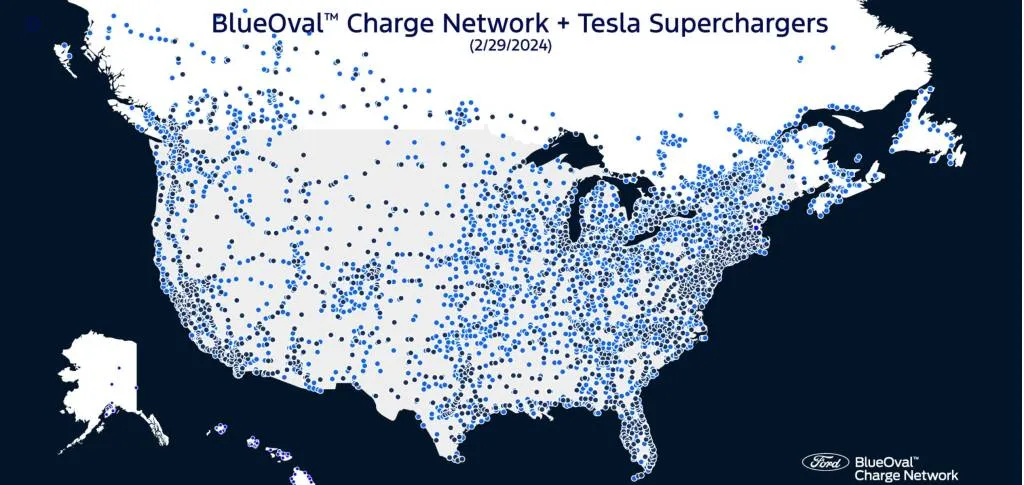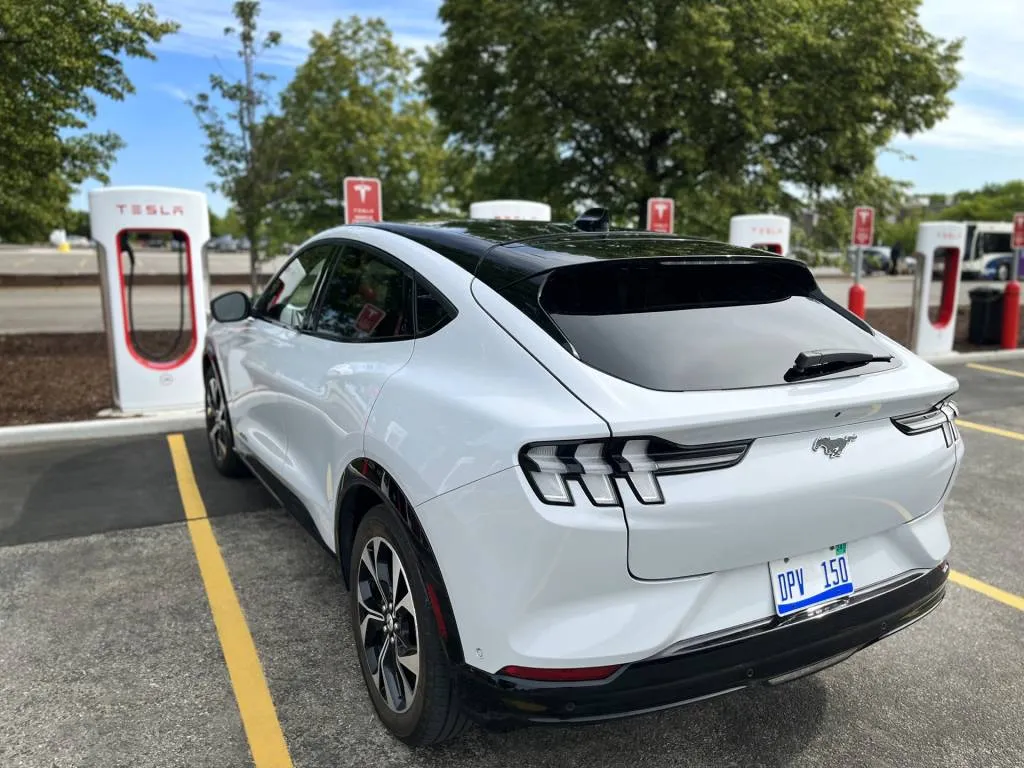Ford led the industry last year in announcing a shift to the Tesla charge port and its North American Charging Standard (NACS), signaling Ford’s adoption of the NACS charge port in future EVs, while also providing upcoming access to the Tesla Supercharger network for existing Ford EV drivers.
That access is almost here. Ford is also the first to offer adapters, due to ship later in March, through which owners can charge on the Tesla network immediately. Starting Thursday, it’s letting drivers reserve one complimentary adapter per Ford EV, and it’s giving a heads-up on exactly how it will work.
The free adapter is being offered to all new and existing EV customers who are enrolled in its charging aggregator by June 30, 2024. Ford notes that it won’t always be free; future Ford EV customers will be able to purchase it for $230, and Ford Pro customers will need to order it in a different manner.
Ford owners can reserve their free Tesla Supercharger adapter by going here. Once logged into their FordPass account, it’s a matter of hitting the reserve button, verifying the shipping address, and clicking reserve.

FordPass network including Tesla Supercharger
Ford sums that with the addition of the Tesla Supercharger network, it now provides access to an aggregated total of 28,000 DC fast-chargers—the type you’ll want to access on road trips.
Owners with the adapter won’t need to use a credit card or another app. They should be able to pay for charging sessions directly through the FordPass app, or Ford’s Charge Assist app in the vehicle touchscreen, which Ford notes will soon be renamed Public Charge.
Tesla Superchargers aren’t part of route planning quite yet—that’s part of an future software update—but Ford made clear how to use them as part of a revised page that went live Thursday.
Ford included a simple video instructing owners how to use the Tesla Supercharger network and other NACS connectors, finding them and activating them with either the FordPass app or the in-vehicle interface. When using the adapter it’s a matter of pressing the adapter into the charging connector until you hear a click, pressing the adapter into the vehicle’s CCS charge port until you hear a click. Ford then says that through Plug & Charge the session will start automatically.

Ford Mustang Mach-E at Tesla Supercharger
Owners are instructed to use the silver vehicle-release button when removing the adapter at the end of the session, then separating the adapter from the charge cable by pressing down on the charge connector’s cable release tab.
Tesla’s NACS evolved from a proprietary interface, and it was only fully baked as a charging standard in December. The Ford adapter is one of many on the way. Most, but not all, of the other automakers shifting to NACS have confirmed they’ll also be making an adapter available to current EV owners.
Ford underscores that it recommends only fast-charging to 80%. That’s been a concern for current Tesla drivers from the start, as while idle fees apply, some EVs including the Ford Mustang Mach-E tend to fast-charge at ever-slower rates past 80%—potentially causing congestion issues around Tesla Supercharger stations.
To remedy that, Tesla CEO Elon Musk had at one point suggested making charging more expensive for slower-charging non-Tesla EVs. We’ll soon see how real of a concern this actually is, and whether the cost model changes.


